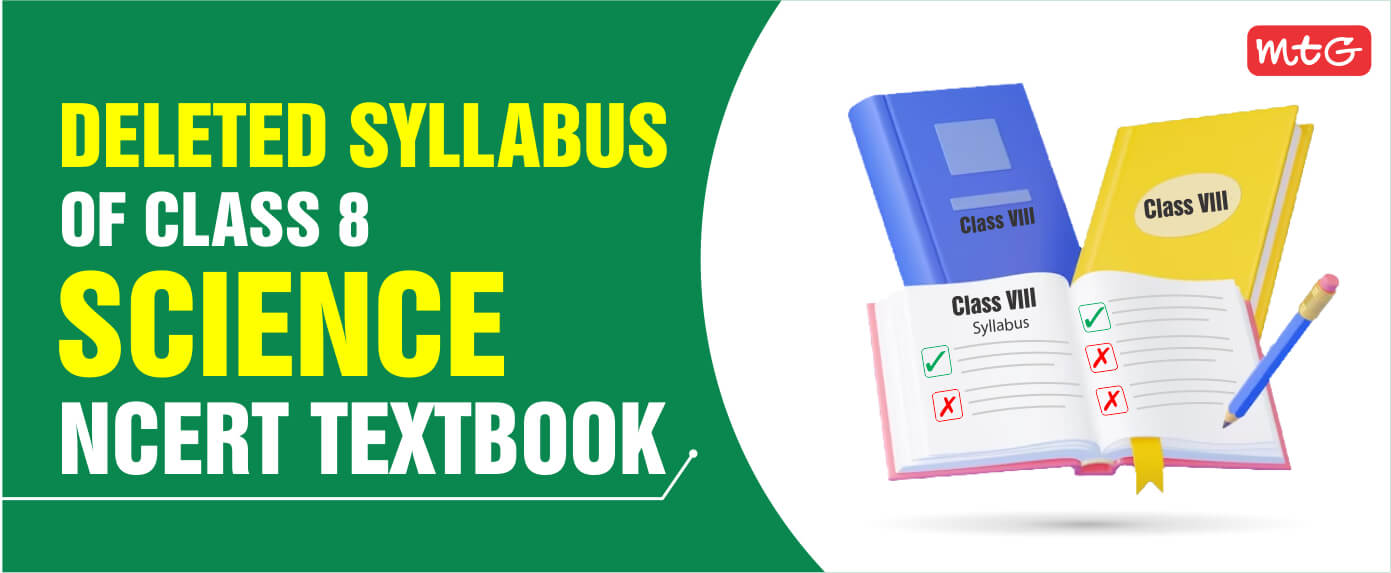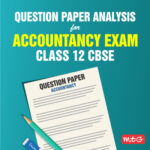
NCERT has significantly updated the Science textbooks in accordance with the National Education Policy (NEP) in 2020 to provide students with a more contemporary and engaging learning experience. “The reduction in the material will help in increased curriculum flexibility and the renewed emphasis on productivity rather than rote learning,” claims NEP 2020. The new syllabus has been designed to ease the workload and pressure on the students and promote more practical and experiential learning. Source – NEP Final
The NCERT textbooks will be available in at least 22 languages, mentioned in the eighth schedule of the Constitution, including Hindi, English, Bengali, Assamese, Gujarati, Kannada, Sanskrit, Punjabi, Sindhi, Manipuri, Urdu, Malayalam, Odiya, and Kashmiri, among others.
Also Check – Class 8 Deleted Syllabus 2023-24
Topics Removed from the Revised Textbooks
|
Following the implementation of the NEP 2020 policy, around 30% of the content of the NCERT Science textbook is likely to be rationalised for 2024-2025. MTG consists of a team of experienced authors and subject matter experts who are well-versed with the latest developments in their respective fields. We strive to provide resources that are up-to-date and provide students with the necessary knowledge to succeed in their academic pursuits. We are quick to adapt in regards to the latest revision of the NCERT Science textbooks and will soon include changes consistent with the NCERT on our Class 8 School Books. The table below lists the content that has been dropped from NCERT Science for class 8 for the academic year 2024–2025. |

|
| Chapter | Dropped Topics/Chapters |
|---|---|
| Chapter 1: What, Where, How And When? | ‘Introduction’ added in the title of the chapter. ‘Elsewhere’ |
| Chapter 2: From Hunting-gathering to Growing Food | The title ‘Storing animals’ has been replaced with ‘Rearing animals’ The title “Draw a Pit house” ‘Elsewhere’ Activity no. 7 |
| Chapter 3: In the Earliest Cities | Keyword ‘ruler’ ‘Elsewhere’ |
| Chapter 4: What Books and Burials Tell Us | “One of the oldest Books in the world” heading has been rephrased as “One of the oldest literary sources in the world”. ‘Elsewhere’ |
| Chapter 5: Kingdoms, Kings and an Early Republic | Third sentence of ‘How some men became rulers’ removed First two paras and last two paras in ‘Varnas’ box removed The section on ‘Taxes’ has been condensed. First para, ‘Changes in agriculture’, last four lines deleted. Last para and box item removed Keyword ‘democracy’ removed in the box item. ‘Elsewhere’ Activity 5 and 7 |
| Chapter 6: New Questions and Ideas | Addition of names— Apala, Ghosha, Lopamudra, Maitreyi in the last para. ‘beggar’ word deleted from the last sentence. ‘Monasteries’ replaced with the term ‘Viharas’. Similarly words ‘monks’ and ‘nuns’ replaced with ‘Bhikkhus’ and ‘Bhikkhunis’ respectively. In box — ‘The system of Ashramas’, first two paras (Around the time... and meditate) and last two paras (The system of... Ashramas) removed the term Monastery deleted from the keywords. ‘Elsewhere’ |
| Chapter 7: From a Kingdom to an Empire | Title of the Chapter changed to ‘From a Kingdom to an Empire’. first heading ‘A very big kingdom - an empire’ removed Addition of one line after Greece — ‘his son Mahendra and daughter Sanghmitra to’ 4 lines in the box (Pandit... from them) removed ‘Elsewhere’ |
| Chapter 8: Villages, Towns and Trade | Chapter 8 and 9 merged and renamed as ‘Villages, Towns and Trade’ In keywords mention only ‘Trader’ and ‘Silk Route’ and merge it with the keywords of Chapter 8. |
| Chapter 10: New Empires and Kingdoms | ‘Elsewhere’ |
| Chapter 11: Buildings, Paintings and Books | Last four words of the first para replaced with ‘through the centuries’ Second line of the second para deleted. ‘Elsewhere’ |
What is the basis of Content Rationalisation?
According to Union Minister of State for Education Annapurna Devi, “Overlapping with similar content included in other subject areas in the same class; similar content included in the lower or higher class in the same subject; difficulty level; content, which is easily accessible to children and does not require much intervention from the teachers and can be learned through self-learning or peer learning; content, which is not relevant in the present context or outdated and taking care of the learning outcomes already developed across the classes, are among the criteria adopted for rationalization of the content load.” Source – NCERT textbooks rationalised to compensate for Covid-19 time loss: Education ministry
Important – CBSE Syllabus 2023-24 – Major Changes in NCERT Textbooks after 19 Years!
MTG is reputed for staying up-to-date with the latest trends and policies in education. We always make sure to come up with learning material that will help students to ace all the challenges they might face in their educations. You can trust us for 100% error-free and authentic content to achieve your dreams.
Follow us for all the educational updates!
View this post on Instagram





























